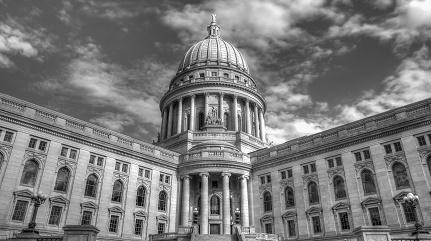A serious danger, big enough to rival climate change, comes in the form of income inequality. During the first years of the new millennium, the gap has been widening rapidly.
Income inequality is even visible in Madison. The city was just ranked the top midsize city to live in. However, there are damning gaps in income inequality that are noticeable in our daily lives. One such tangible problem is homelessness, and the city is still working on creating a day shelter for these individuals (progress hasn’t been made).
Income inequity is a worldwide phenomenon. But just how unequal are different countries? How exactly can one measure it? With the help of a “Gini,” of course. The Gini coefficient is used by international organizations like the United Nations and the Organization for Economic Co-operation and Development (OECD) to measure income inequality. The scale goes from 0 to 1. A score of 0 means that wealth is equally distributed between all members of that country, and a score of 1 means that one person owns everything and the rest own nothing. Countries’ Gini coefficients usually range between 0.25 and 0.6.
According to the OECD, the United States has the highest score out of all the developed economies with 0.38 in 2011. American income inequality is actually worse in 2014 than it was in 1774, even with slavery factored in. We have also failed to shake off the racial gap in wealth even though we have made attempts at emancipating ethnic minorities through civil rights laws. In 2010 the median net worth for black households was 4.5 percent of white median household wealth.
The data above shows that the United States is moving toward a state with two societies, the haves and the have-nots. Our middle class is shrinking, and we no longer have the wealthiest middle class in the world. The wealthiest 1 percent of Americans own 35.6 percent of the wealth in our country. Even more surprising, the wealthiest 10 percent own about 75 percent of the wealth. This leaves only about 25 percent of the wealth for the other 90 percent of Americans.
This is evident in Milwaukee, which in February 2014, was found to have seen a “larger increase in income inequality than almost any other city in the nation during the past several years.” This study discovered that Milwaukee’s top 5 percent have earned almost $250 more in the past few years, while the bottom fifth lost almost $3,500, making Milwaukee’s gap the fourth-most severe in the U.S.
However, this is not a problem unique to the U.S. Income inequality is rife within the developing world. For example, in 2008, the Central African Republic was one of the most unequal countries in the world in terms of income, with a Gini coefficient of 0.563 recorded by the World Bank. Control over assets and income inequality are some of the main reasons that the country has plunged into chaos that includes a civil war.
These social outbursts by those who feel neglected have shown income inequality could destabilize the world, and could lead to the rise of radical political movements. It’s happened before, when economic misfortune gave rise to the Nazi Party in post-WWI Germany. The world escaped this and other radical ideologies, but it’s not certain that we’d defeat them again. The repercussions of income inequality have already started to appear. The Arab Spring has led to unstable governments in Libya and Syria that are unable to contain radical Islamist elements within their territory. The way to combat this problem is through the reformation of capitalism.
Capitalism in its current state is what drives the acceleration of income inequality. We live in an era of predatory capitalism where the pursuit of money and assets have erased morality from corporate decisions. The culture of greed has plagued human civilization in the 21st century, leaving dreams and lives shattered. The bottom 90 percent need to regain control over more capital rather than the small elite that controls almost all of it. If things remain the same, it’s possible that the marginalization of the poor and working classes will lead to a social catastrophe that threatens the stability of our civilization.
Nichalous Pogorelec ([email protected]) is a sophomore majoring in sociology.





















